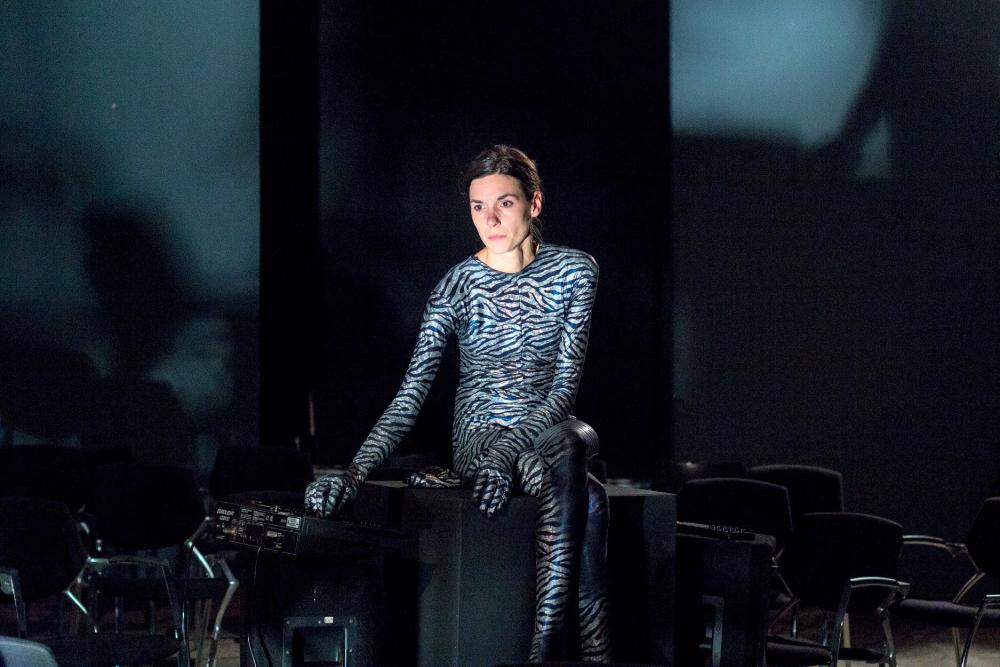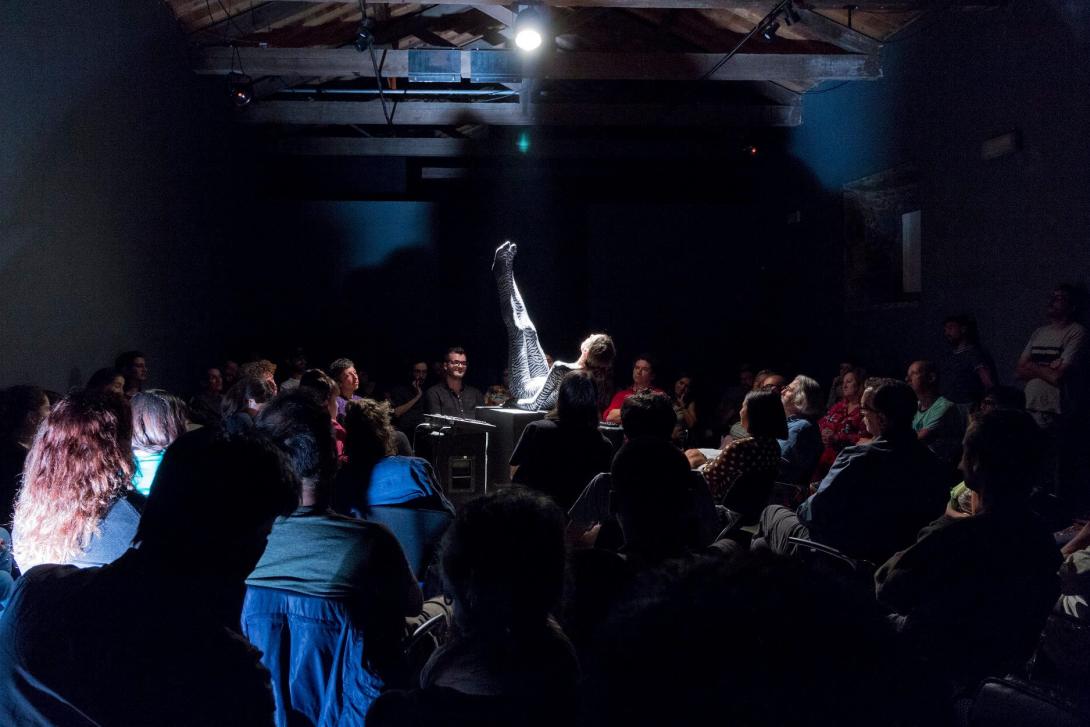| ma | di | wo | do | vr | za | zo |
|---|---|---|---|---|---|---|
|
1
|
2
|
3
|
4
|
5
|
6
|
7
|
|
8
|
9
|
10
|
11
|
12
|
13
|
14
|
|
15
|
16
|
17
|
18
|
19
|
20
|
21
|
|
22
|
23
|
24
|
25
|
26
|
27
|
28
|
|
29
|
30
|
31
|
|
|
|
|
Lees meer - Romance
Lees meer over Romance.
Lees hier de korte inhoud van de voorstelling en de credits.
Putting words in the mouths of spectators
tekst van Gonçalo Frota (PÚBLICO ípsilon, 12 April 2019)
For some time now Lígia Soares has been putting words in the mouths of spectators. To awaken them from the passivity to which they are usually doomed and resigned, of course, but also to deposit a seed of disquiet that obliges the audience to take a stand before the show they are attending. She is tired of the spectator’s role being often reduced to choosing to be on the side of “like” or “dislike” and her relationship with a creation can, in many cases, be reduced to this little cross drawn in an uncompromising way. As if theater or any other area of artistic creation were little more than a multiple choice test.
Perhaps because Lígia Soares started from dance, the relationship with the body and the presence of others never seemed to her likely to be treated in such an unequal way — in which the performer is responsible for full expression and exposure, and the public for silent enjoyment. The presence of an audience body was too concrete to be reduced to an almost ghostly dimension. In 2008, taking advantage of a moment when no production occupied her, she decided to write a play that could only be, in fact, tested in front of spectators. This kind of system then appeared in Turning Backs, a show in which there was not even an actor on stage, a play “made for the spectators to act as a chorus”, and it was up to them to say the text; and finally in Romance, in which the public was summoned to follow her instructions and to repeat the sentences dictated by her. More than an invasion of the spectator's space, the idea involved manipulation, even in a way that could be considered violent — by forcing or impelling someone to accept a discourse that does not belong to them, creating and undermining at the same moment a channel of communication.
This device echoed the conflicts resulting from representative democracy or any other organized situation in which individuals and collectives find themselves in the situation of having someone who speaks for themselves and assumes their voice. Lígia wants to disturb this relationship, she wants to destabilize this passivity.
“There can be an ethical side to thinking about conformism and making it more conscious,” she says of Romance. “We are resigned, educated, adequate to this theater space. And I want to make that fact a possible subject”.

